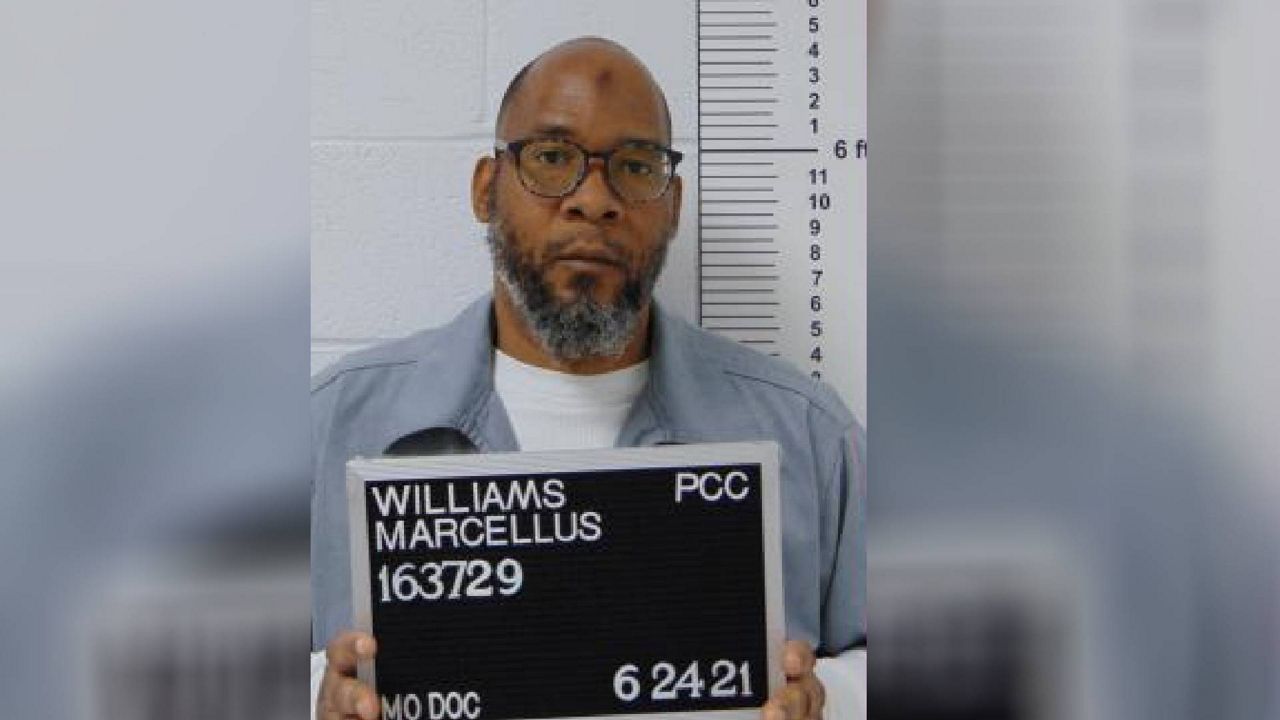ST. LOUIS COUNTY, Mo.—A St. Louis County judge has denied a motion to vacate the conviction of a man scheduled to be executed later this month.
Marcellus Williams was convicted of a 1998 stabbing murder in University City.
Last month, prosecutors reached a plea deal that would spare Williams the death penalty in exchange for a life sentence without parole over concerns about tainted DNA evidence on the murder weapon. But the state supreme court overruled the agreement and sent the case back for a re-hearing.
Judge Bruce Hilton ruled today there was no evidence presented to suggest potentially useful evidence was destroyed in bad faith and that other claims put before the court amounted to "re-packaged arguments" that had already been rejected by other courts.
The execution is scheduled for September 24. His attorneys are expected to file further appeals and to ask Missouri Gov. Mike Parson for clemency. Parson has not granted clemency in a death penalty case since taking office in 2018.
"This person has a significant innocence claim and that for the first time, you know it could be great for him going out of office, for him to actually grant clemency in this case," Michelle Smith, with Missourians to Abolish the Death Penalty said at an afternoon news conference.
At one point this year, it looked like Williams’ conviction might be overturned. St. Louis County Prosecuting Attorney Wesley Bell filed such a request in January, citing testing that found Williams’ DNA was not on the murder weapon. That testing was not available when Williams was tried in 2001.
But subsequent tests determined the knife had been so mishandled in the aftermath of the killing that it would be impossible to identify the killer. With the DNA evidence spoiled, lawyers for Williams and the prosecutor’s office reached a compromise at an Aug. 21 hearing— Williams would enter a new, no-contest plea to first-degree murder in exchange for a new sentence of life in prison without parole.
Hilton signed off on the agreement. So did Gayle’s family.
At the urging of Republican Missouri Attorney General Andrew Bailey, the Missouri Supreme Court blocked the agreement and ordered Hilton to proceed with an evidentiary hearing.
Testing found that DNA from Edward Magee, an investigator for the prosecutor’s office when Williams was tried, was on the knife. Testing also couldn’t exclude the original prosecutor who handled the case, Keith Larner.
Larner acknowledged that he touched the knife at least five times, without gloves, while preparing for trial.
“I didn’t even know of any other testing that could be done,” Larner said.
Charlotte Word, an expert in forensic DNA testing, testified that because of how the knife was handled, it was impossible to know if Williams’ DNA had previously been on it.
A 2021 Missouri law allows prosecutors to ask a court to vacate a conviction they believe was unjust. Three other men — Christopher Dunn last month, Lamar Johnson and Kevin Strickland — have been freed after decades in prison under that law.
Williams has been close to execution before. In August 2017, just hours before his scheduled lethal injection, then-Gov. Eric Greitens, a Republican, granted a stay after testing showed that DNA on the knife matched an unknown person.
That evidence prompted Bell to reexamine the case. A rising star in Missouri Democratic politics, Bell defeated incumbent U.S. Rep. Cori Bush in a primary this month and is heavily favored in the November general election.
Prosecutors at Williams’ trial said he broke into Gayle’s home on Aug. 11, 1998, heard water running in the shower, and found a large butcher knife. When Gayle came downstairs, she was stabbed 43 times. Her purse and her husband’s laptop were stolen. Gayle was a social worker who previously worked as a reporter for the St. Louis Post-Dispatch.
In a statement, Bell said he was "immensly disappointed" by Thursday's ruling.
"I believe that those who are convicted of committing crimes should be brought to justice. And, for something as consequential as the death penalty, the evidence must prove the defendant to be guilty without a shadow of a doubt...There are detailed and well-documented concerns regarding the integrity of Mr. Williams’ conviction," he said, in the statement, that hinted at further legal appeals.




